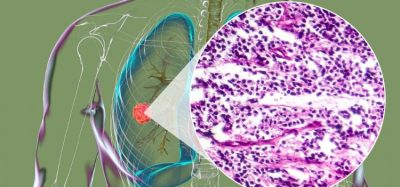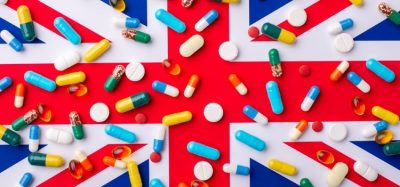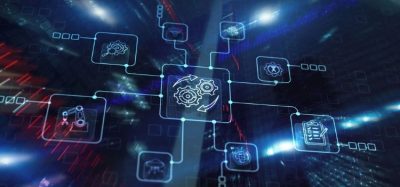The potential of tryptamines in treatment-resistant depression
Posted: 15 December 2022 | Guy Goodwin (COMPASS Pathways) | No comments yet
There is growing interest in the use of psychedelic-assisted therapy for treatment of mental health conditions. Here, Guy Goodwin, Chief Medical Officer of COMPASS Pathways, explores the potential of tryptamines to treat depression, sharing results from a recent clinical trial.
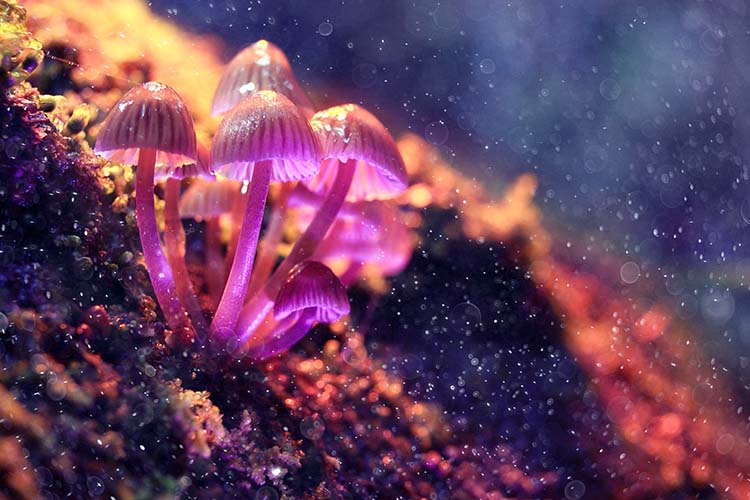

There is increasing interest and promising evidence to support the use of tryptamines to treat treatment-resistant depression (TRD).1–3 This broad class of serotonergic agents, such as psilocybin, can produce changes in sensory perception, mood and thought processes.3 Psilocybin is metabolised to a simpler tryptamine, psilocin, which acts on the serotonin 2A receptor in the brain; this appears to help the brain work with greater flexibility, allowing different brain regions to connect and communicate more easily.3,4
Tryptamines and their mode of action
People with TRD are believed to lack certain connections in their brain that link with the serotonin pathway…Psilocybin therapy aims to fix the connections”
To understand how tryptamines work, imagine that our brain is a circuit board, and all the parts need to be connected to light up properly. People with TRD are believed to lack certain connections in their brain that link with the serotonin pathway; serotonin delivers messages that affect how we feel, think and sleep.4 Psilocybin therapy aims to fix the connections by turning on a switch in the brain known as the serotonin 2A receptor.5 This action sends a message to release signals in the brain, such as dopamine, a hormone that can help improve motivation and produce feelings of happiness.6,7 Turning on these switches causes many changes in the brain and produces a host of new experiences and ideas. Not only that, but psilocybin therapy may also create new connections between different areas throughout the brain, which can positively alter how people feel and perceive their surroundings. These new connections appear to remain even when psilocybin’s psychedelic effect has worn off.8
Psilocybin therapy in mental healthcare
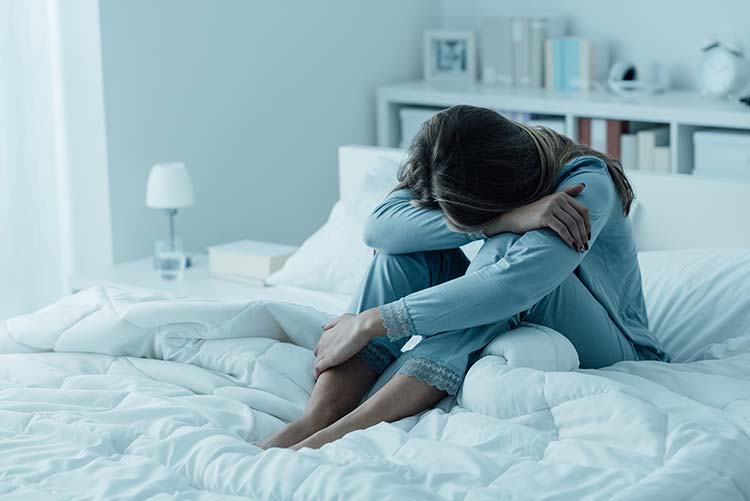

Clinical trials are underway to study psilocybin therapy for treatment-resistant depression
Mental healthcare should promote optimal quality of life through preventing, treating and managing mental health illnesses, such as depression, with the aim of facilitating sustained recovery.9,10 In many ways, psychiatry lags behind other fields of medicine; the brain is a hugely complex organ and what we choose to do and where we live can have their own impacts. There is still a lot to be uncovered about the aetiology of depression and how to treat it. The current trial-and-error process of treating depression takes time, with more than 100 million people around the world suffering from treatment-resistant depression.11 TRD carries a huge burden – a recent study in Europe showed that three out of four people with the condition are unemployed, and 60 percent had at least one mental-health-related hospitalisation in the last 12 months.12 In addition, over 40 percent of patients who did not respond to between three and four conventional antidepressants within their current depressive episode continued to be managed sub‑optimally through subsequent cycles of ineffective monotherapy.12
The introduction of psilocybin therapy could provide a potential step-change in mental healthcare. Compared to conventional antidepressant therapy that consists of daily oral administration, psilocybin therapy acts through a single-dose capsule, with repeated administration being investigated in COMPASS’ larger Phase III study.4
“Currently, 56 psilocybin therapy clinical trials in various stages are registered with the US Food and Drug Administration”
Currently, 56 psilocybin therapy clinical trials in various stages are registered with the US Food and Drug Administration (FDA).8 The largest double-blind, randomly assigned Phase IIb trial of psilocybin therapy in TRD was recently completed on COMP360, a proprietary stabilised, high-purity polymorphic crystalline synthesised formulation of psilocybin. COMP360 capsules are an immediate‑release solid dosage form for oral administration, administered with psychological support.
The study of 233 participants reported that almost 30 percent of patients who received a single 25mg dose of COMP360 psilocybin therapy were in remission by Week 3.13 This is significant given that the reporting of full remission in TRD is not common in existing research. Additionally, the Phase IIb trial found that outcome was associated with dose. Following a significant reduction in depressive symptoms after three weeks (P<0.001), a durable response was found up to 12 weeks post‑administration with a single 25mg dose compared with 1mg and 10mg doses.13,14
Late-stage developments in psilocybin therapy
As late-stage development continues, COMPASS Pathways is running a rigorous, Phase III clinical development programme of its psilocybin therapy for TRD across Europe and North America. Ongoing clinical development has highlighted the practical challenges associated with psilocybin therapy that will need to be overcome. For instance, psilocybin is delivered alongside psychological support, which requires healthcare professionals to be carefully trained.4
There are four stages to psilocybin therapy: assessment, preparation, psilocybin administration and integration.
COMP360 psilocybin therapy is administered for six to eight hours in a controlled environment, preceded and followed by psychological support”
COMP360 psilocybin therapy is administered for six to eight hours in a controlled environment, preceded and followed by psychological support. The goal of psilocybin therapy is for patients to generate their own insights and ideas from the experience to help change unhelpful emotional and behavioural patterns.4
To enable more efficient and engaging delivery of its psilocybin therapy, COMPASS Pathways is investing in digital tools and technologies to support both patients and healthcare professionals. Examples currently being explored include smart sensors and wearable technologies, as well as expanding current research into artificial intelligence to produce accurate predictions from currently available data.
About the author
Guy is Chief Medical Officer, COMPASS Pathways. Guy completed his medical degree and DPhil in physiology at the University of Oxford and, following training in psychiatry, worked as Clinical Scientist at the MRC Brain Metabolism Unit in Edinburgh for 10 years. He is a Fellow of the American College of Neuro-psychopharmacology and has previously held the position of President of the British Association for Psychopharmacology, President of the European College of Neuro-psychopharmacology (ECNP), and Senior Investigator on the faculty of UK National Institute for Health Research (NIHR).
References
- Sub Laban T, Saadabadi A. Monoamine Oxidase Inhibitors (MAOI). StatPearls [Internet]. Treasure Island (FL): StatPearls Publishing; 2022. [Cited 2022Nov] Available from: https://www.ncbi.nlm.nih.gov/books/NBK539848/
- Miller JJ. The Psychiatric Pipeline: 10 Agents to Watch [Internet]. Psychiatric Times. MJH Life Sciences; [Cited 2022Nov]. Available from: https://www.psychiatrictimes.com/view/psychiatric-pipeline-10-agents-watch
- Araújo AM, Carvalho F, Bastos Mde L, et al. Archives of Toxicology. 2015;89, 1151–1173.
- COMPASS. About psilocybin therapy. [Internet]. Compass Pathways.2020 [Cited 2022Nov]. Available from: https://compasspathways.com/our-work/about-psilocybin-therapy/
- Halberstadt AL, Koedood L, Powell SB, Geyer MA. Differential contributions of serotonin receptors to the behavioral effects of indoleamine hallucinogens in mice. Journal of Psychopharmacology. 2010;25(11):1548–61.
- Vollenweider FX, Vollenweider-Scherpenhuyzen MF, Bäbler A, et al. Psilocybin induces schizophrenia-like psychosis in humans via a serotonin-2 agonist action. NeuroReport. 1998;9(17):3897–902.
- Sakashita Y, Abe K, Katagiri N, et al. Effect of psilocin on extracellular dopamine and serotonin levels in the mesoaccumbens and mesocortical pathway in awake rats. Biological and Pharmaceutical Bulletin. 2015;38(1):134–8.
- Petri G, Expert P, Turkheimer F, et al. Homological scaffolds of brain functional networks Journal of the Royal Society Interface. 2014;11(101):20140873.
- Mental health care [Internet]. Standards of Care. 2018 [Cited 2022Nov]. Available from: https://www.standardsofcare.org/understanding-care/types/mental-health/
- Department of Health. Victoria Australia. Service standards for mental health [Internet]. State Government of Victoria, Australia; 2015 [Cited 2022Nov]. Available from: https://www.health.vic.gov.au/practice-and-service-quality/service-standards-for-mental-health
- World Health Organization. Depression and other common mental disorders: global health estimates. [Internet]. 2017. [Cited 2022Nov] Available from: https://apps.who.int/iris/handle/10665/254610. License: CC BY-NC-SA 3.0 IGO.
- Orsini LS, O’Connor SJ, Mohwinckel MT, et al. Observational study to characterize treatment-resistant depression in Germany, France and the United Kingdom: Analysis of real-world data collected through a survey of healthcare professionals. Current Medical Research and Opinion. 2022;:1–8.
- Goodwin GM, Al E, Madras BK. Single-dose psilocybin for a treatment-resistant episode of Major depression. 2022. The New England Journal of Medicine. 2022;387:1637–1648.
- COMPASS. Comp360 psilocybin therapy study results [Internet]. Compass Pathways. robhern; 2022 [Cited 2022Dec]. Available from: https://compasspathways.com/our-work/comp360-psilocybin-therapy-in-trd/
Issue
Related topics
Clinical Trials, Drug Delivery Systems, Drug Development, Drug Safety, Research & Development (R&D)




